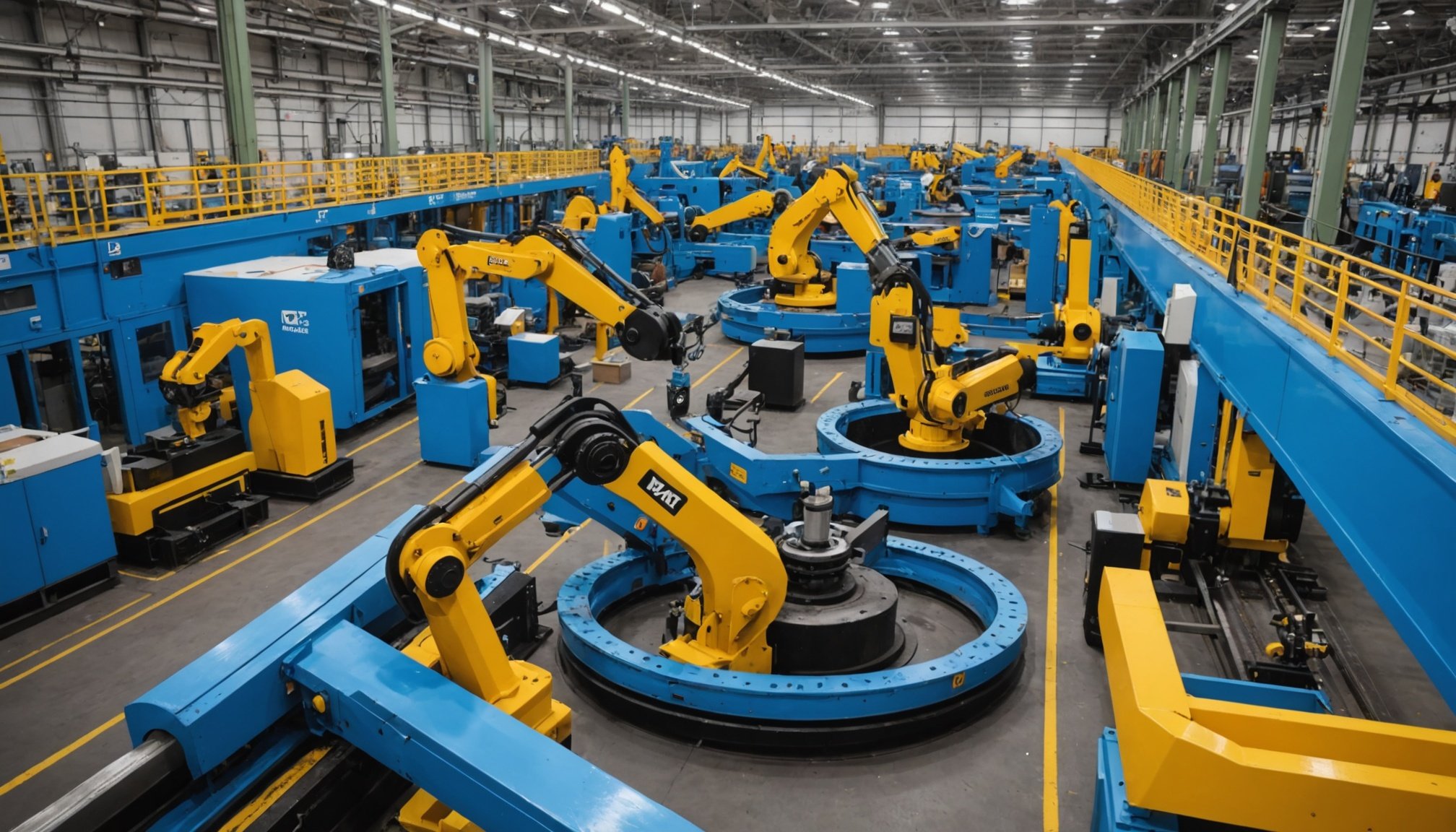Understanding the Circular Economy in UK Manufacturing
The circular economy represents a shift from the traditional linear model of “take, make, dispose” to a more sustainable framework where resources are reused, remanufactured, or recycled. This approach is crucial for promoting sustainable manufacturing within the UK industry, which is grappling with environmental concerns and resource scarcity.
In the context of UK manufacturing, adopting circular economy principles can significantly reduce waste and enhance resource efficiency. This is particularly important as industries face mounting pressures to minimise their carbon footprint and adhere to environmental regulations. By designing products with longevity in mind and facilitating easier maintenance and repair, manufacturers can reduce the need for virgin materials and foster a more sustainable production model.
Also to discover : Navigating Crisis with Confidence: The Definitive UK Business Survival Guide
Despite its potential benefits, the transition to a circular economy poses challenges for the UK manufacturing sector. These include the need for significant investment in new technologies and infrastructure, as well as changes in corporate culture and consumer behaviour. Furthermore, there is a necessity for robust government policy and regulatory measures to support and incentivise sustainable practices.
Innovative Strategies for Sustainable Manufacturing
In the realm of sustainable practices, digital transformation is a game changer for innovation in manufacturing. By integrating advanced technologies such as the Internet of Things (IoT) and artificial intelligence (AI), manufacturers can achieve heightened resource efficiency and reduce waste. Digital monitoring enables precise inventory management, efficient use of materials, and optimised energy consumption, directly contributing to sustainability goals.
Also to discover : Transforming UK Food Delivery: Innovative Strategies for Efficient Logistics Management
Adoption of New Technologies
Automation plays a pivotal role in reducing waste. Robotic systems enhance production accuracy while minimising errors and scrap materials. For example, the automotive industry in the UK has successfully adopted robots to streamline assembly lines, significantly decreasing resource consumption. Such technological shifts are crucial for an industry fixated on innovation in manufacturing.
Redesigning Products for Longevity
Eco-design principles champion the creation of products with extended life cycles. Companies like Rolls-Royce have embraced modular designs, allowing for easy updates and repairs. This not only conserves resources but also supports ongoing sustainability efforts. Design for disassembly ensures that components can be reused, embodying the principles of a circular economy.
Implementing Sustainable Supply Chains
Source selection is a major lever for sustainability. Choosing sustainable materials and local suppliers reduces carbon footprints, while fostering strong partnerships with suppliers encourages adherence to circular practices. The commitment to resource efficiency becomes a collective endeavour within the supply chain.
Policy Frameworks Supporting Circular Economy Initiatives
A robust government policy is fundamental to fostering a circular economy in the UK. The government has implemented numerous policies to promote sustainable manufacturing, focusing on reducing waste and enhancing resource efficiency. These policies serve as a guiding framework for businesses, encouraging innovation and sustainable practices.
Public funding plays a critical role in supporting these initiatives. Grants and financial incentives enable companies to invest in clean technologies and infrastructure that align with circular economy principles. This financial backing is crucial for companies looking to transition, as it mitigates the upfront costs associated with adopting new, sustainable technologies.
Regulations also significantly influence manufacturing practices. For example, stricter environmental regulations push manufacturers to rethink their processes, incorporating eco-friendly practices into their production lines. These regulatory measures often encourage companies to design products that use fewer materials and produce less waste.
Moreover, clear guidelines and standardised frameworks help businesses measure their sustainability efforts more effectively. By providing a structured approach to assessing resource efficiency, these policies ensure that all aspects of the manufacturing process are geared towards achieving sustainability, creating a consistent and reliable path for companies to follow.
Real-World Applications and Success Stories
In the UK manufacturing sector, several pioneering cases showcase the transformative impact of the circular economy. Through strategic initiatives, companies are redefining success with sustainable manufacturing practices.
Leading Examples of Circular Economy Adoption
Iconic British manufacturer Marks & Spencer leads the charge in applying circular principles. Their “Plan A” programme integrates sustainability across all operations, focusing on waste reduction and resource efficiency. This initiative underscores their commitment to a circular economy, by prioritising recycled materials and closed-loop processes.
Another exemplary company is Unilever UK, which has implemented sustainable packaging solutions. By using post-consumer recycled plastics, Unilever not only reduces waste but also aligns with broader UK industry sustainability goals.
Role of Industry Collaboration
Collaboration is a significant driver of circular economy success. Initiatives such as the Ellen MacArthur Foundation bring together diverse industry players to share best practices and innovation in manufacturing. Such partnerships enable manufacturers to achieve collective resource efficiency, essential for sustainable change.
Measuring Impact and Outcomes
The UK government uses rigorous metrics to assess circular economy adoption. Lifecycle assessment tools and sustainability scorecards help track progress, ensuring companies maintain a transparent and accountable approach to sustainable manufacturing.
Resources and Tools for Implementation
Transitioning to a circular economy requires access to valuable resources and tools. In the UK industry, manufacturers can leverage a range of implementation resources designed to facilitate this shift. This includes guidelines, software, and platforms that help evaluate and enhance sustainability practices.
Sustainability guides provide structured approaches for integrating circular economy principles into business strategies. They offer insights into resource management, helping companies reduce waste and improve efficiency. Access to such guides is essential for those navigating the complexities of sustainable manufacturing.
Several tools are critical for assessing sustainability. Lifecycle assessment software enables manufacturers to evaluate the environmental impact of products from cradle to grave. By analysing the entire lifecycle, companies can identify areas for improvement and align with sustainable manufacturing objectives.
Educational programs and workshops are also vital. They equip professionals with the knowledge needed to implement resource efficiency and circular principles effectively. By attending these programs, individuals gain skills to drive industry transformation towards sustainability.
Incorporating these tools and resources ensures that UK manufacturers remain competitive while addressing pressing environmental challenges. These supports underscore the importance of a comprehensive approach to embracing the circular economy.

